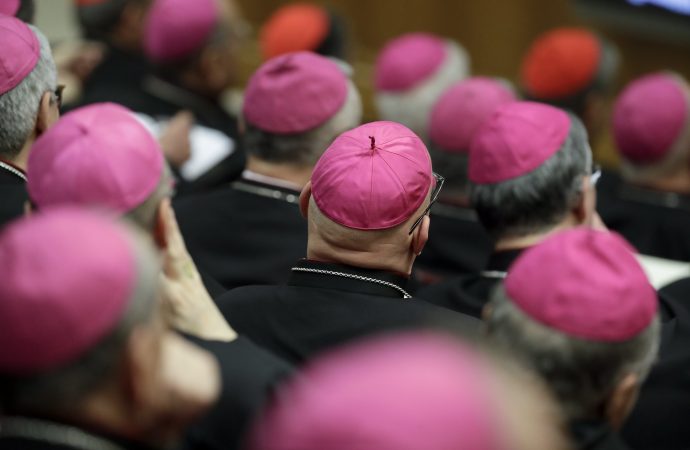Italian Bishops Decree ‘moral Obligation’ to Report Abuse to Police
By Claire Giangrave
Italian bishops are running late on several items on Pope Francis’s to-do list, from reducing the disproportionate number of dioceses on the peninsula to streamlining marriage annulments, but when it comes to the protection of minors they say they’re now getting up to speed. During their general assembly May 20-23, the Italian Episcopal Conference (CEI) approved “Guidelines for the Protection of Minors and Vulnerable Persons,” which will focus on the prevention of abuse and will be added to their previously published 2014 guidelines. The guidelines will be published in the coming days, but bishops already shared their main novelty, which is a “moral obligation” for clergy to report verified cases of sexual abuse to civil authorities. “This was, I believe, the real step forward of these guidelines compared to the ones we had before,” said Archbishop Lorenzo Ghizzoni of Ravenna, who heads the commission for the protection of minors at CEI, during a news conference May 23. The local church has promised “maximum collaboration with civil authorities,” he said. While there is no judicial obligation for clergy to report instances of abuse to the police in Italy, bishops at the assembly chose “to be bound to a moral obligation to prepare a formal complaint and hand it to the competent authorities.” When members of the clergy are presented with a report of sexual abuse, they will immediately have to determine its veracity through a preliminary investigation. If found to be credible, the allegation will be passed to the Congregation for the Doctrine of the Faith, the Vatican body that handles sexual abuse reports. The document also takes into account Francis’s documents on the protection of minors, the August 2018 Letter to the People of God, his closing speech for the February Summit of Bishops on clerical abuse and his most recent motu proprio “You are the Light of the World” on cover-up and accountability. The guidelines were created by a commission of experts over the past three years, but Ghizzoni said they are “experimental” and will have to await feedback from local dioceses. They will also have to be updated to include twenty-or-so reflections offered by Italian bishops during their “lively debate” at the assembly. The bishops agreed on guiding principles for handling reports of sexual abuse, which focus on listening to the victims and the formation of a diocesan contact person - who can be lay, clergy, male or female - who will assist the bishops. “These are the fundamental changes that we are asking the Italian Church to take a significant step forward on,” Ghizzoni said. “We want to put the care and protection of minors and vulnerable people in first place.” Bishops also applied a series of “articulate and complex” legal procedures inspired by Francis’s documents promoting the protection of minors. They also created a protocol for the local dioceses on how to be vigilant, to support parents and to help “minors recognize those who approach them, like wolves with lambs, looking for victims,” the bishop said. While Ghizzoni stated that “there are objective challenges in collecting data” regarding the numbers and scope of clerical abuse in Italy, he suggested that CEI’s National Advisory Network locally distribute a questionnaire to collect more information. The jury’s still out on whether the principles and guidelines will bear practical results, but it’s a considerable leap forward in what has typically been a languid approach to the fight against clerical sexual abuse on the peninsula. During his inaugural speech to CEI on Monday, Francis scolded bishops and expressed “regret” for their slowness in enacting a revised marriage annulment procedure. The bishops told media during the press conference that the delay has been caused principally by a question of who will be footing the bill for more numerous, dispersed and inexpensive diocesan and inter-diocesan tribunals. Regarding Francis’s other complaint, the massive and disproportionate number of dioceses in the territory, the president of CEI, Cardinal Gualtiero Bassetti, said that the local church is entirely committed to answering the pope’s demands, even if it will be “a really long journey.” “There are many challenges,” he said, “because no diocese wants to give up the figure of the bishop, which would give the impression of decay in the social context.”
|
.
Any original material on these pages is copyright © BishopAccountability.org 2004. Reproduce freely with attribution.
